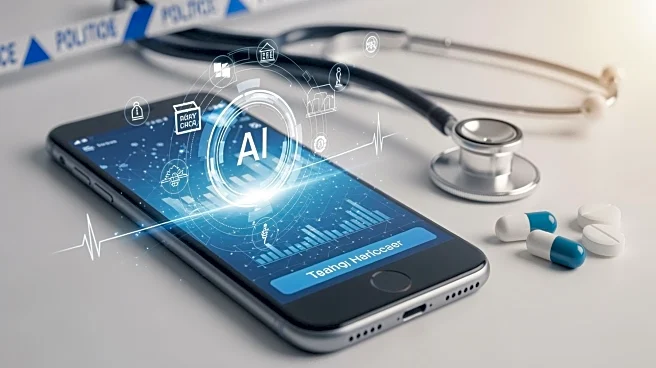What's Happening?
Aide Health, an Oxford-based company, has introduced an innovative app called Mirror, designed to assist patients in recalling and summarizing information from medical appointments using artificial intelligence (AI). The app records the details of medical consultations
and provides a summary that patients can refer back to or share with family and caregivers. Ian Wharton, the creator of the app, developed it to help his father, who has early-stage Alzheimer's, to retain critical information from doctor visits. The app aims to address the challenge of patients forgetting important details from their healthcare consultations. Users like Janette Alfrey have expressed surprise at the app's effectiveness, noting its ability to provide detailed summaries of medical discussions. The app ensures that patient data remains private, as it is not sold or shared with third parties.
Why It's Important?
The introduction of the Mirror app represents a significant advancement in healthcare technology, particularly for patients with memory challenges or those who struggle to retain complex medical information. By providing a reliable method for patients to recall and share medical advice, the app could improve patient outcomes and adherence to medical instructions. This development is particularly beneficial for elderly patients or those with cognitive impairments, who may otherwise miss critical health information. The app's ability to maintain patient privacy while offering a practical solution to a common healthcare issue highlights its potential impact on patient care and the healthcare industry at large.
What's Next?
Future developments for the Mirror app include enhancing its functionality to become more interactive during medical consultations. Ian Wharton envisions the app evolving to act as an advocate for patients, potentially prompting them to ask pertinent questions during appointments. This progression could further empower patients in managing their health and ensure they receive comprehensive care. As the app gains traction, it may prompt healthcare providers to integrate similar technologies into their practices, potentially transforming patient engagement and communication in medical settings.















